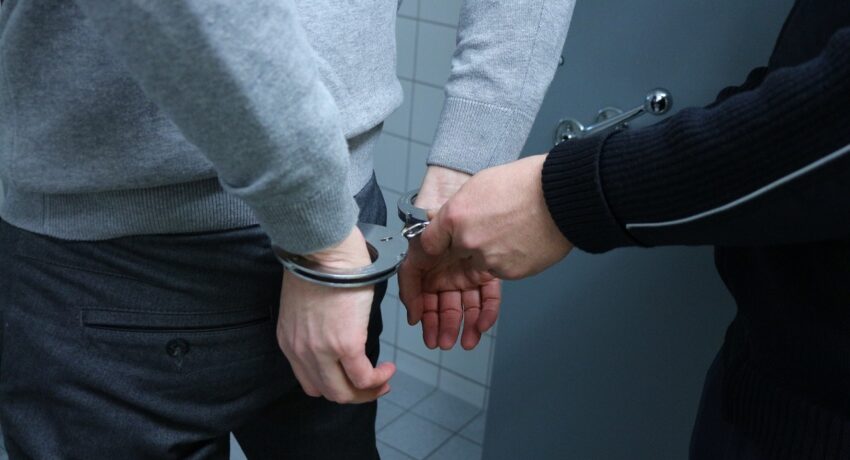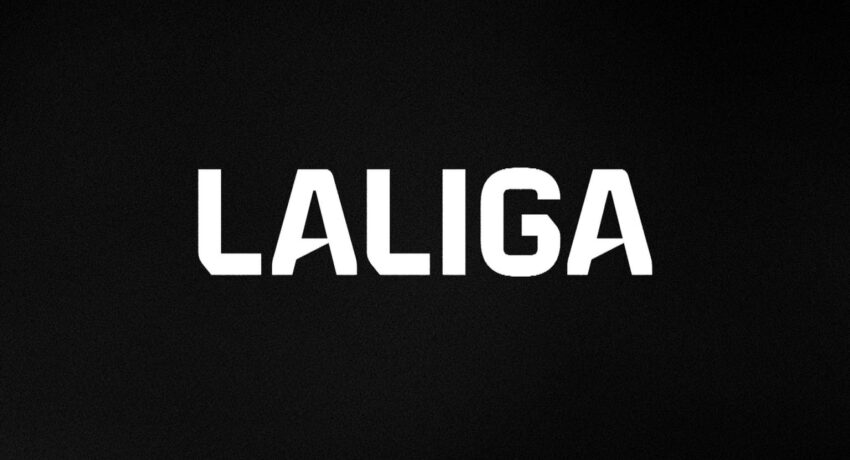After her studies, she worked with people with autism, and now she helps make TV shows sustainably. Aneta Kožuszniková helped create the ESG strategy for Nova TV and is responsible for the production of Love Island.
The Central European Media Enterprises (CME) group, which includes TV Nova, TV Markíza and other stations from Bulgaria, Romania and Slovenia, adopted its sustainability strategy four years ago. At that time, the group began implementing measures to reduce its carbon footprint in the production of its programmes. Last autumn, Nova and five other major domestic players established the Czech Platform for Sustainable Audiovisual Production. The purpose was to unify production processes and establish a database for socially responsible suppliers, fostering synergies with other institutions.
Greenfilming, as the platform is also called, offers a green filming manual and other tools that support the reduction of the negative environmental impact of the audiovisual industry. Green coordinators play an important role in decarbonising the creative industry. One of them is Aneta Kožuszniková, ESG consultant at TV Nova.
To what extent is the green coordinator function embedded in the Czech environment?
In green filming, there are several roles with specific titles. You will come across green captain, green marshal, green coordinator and others. In general, our field should permeate the whole filmmaking process. It shouldn’t stand alone. For one thing, we can’t jeopardise the shoot, and for another, we have to think about where we are going to stay, what transportation we are going to use, and which companies we are going to approach in pre-production. At that phase, we put together the sustainable filming principles we can apply. We constantly adapt the action plan to changes.
How did your work with people with autism or children in palliative care lead you to become involved in sustainable filmmaking?
I started out at TV Nova helping to coordinate the Nova Foundation, and the management was just developing their CSR and ESG strategy. Initially, through my experience in social work, I helped more with shaping the company’s CSR, but then my colleague Hana De Goeij and I found that green filming made a lot of sense. Television has to clean up its own backyard before talking about responsibility. So we started to test the principles of sustainable filming on a few projects, inspired by the British BAFTA albert platform [Author’s note: BAFTA albert is an organisation that is part of the British Academy of Film and Television Arts, or BAFTA].
I suppose it was an important experience for you.
Yes, it was my initial training. They provide free courses specifically for one’s role in the crew. If you are a creative producer, an executive producer, a production or location coordinator, or a prop person, they have different training for these positions. That’s great because you are not listening to something that doesn’t directly apply to you. I’ve likely done all the albert training, and it gave me a decent idea of things, at least to start with.
But the most important preparation was the actual filming. I started as a coordinator for the Nova Foundation, so I knew nothing about filming. So I went to the producers to see if I could help them as a production assistant. The moment they brought me on the team for the first time and I was able to get a good feel for how everything worked, I not only started to enjoy filming, but I also figured out what was and wasn’t possible.
What conditions does a company have to meet to get a BAFTA certificate?
Only an individual project is awarded the certificate. It is best to summarise at the format development stage which measures are and are not possible. We submit a draft action plan to the albert online platform. At the same time, we draft a carbon calculator. If we already know at least fifty per cent of the locations, we are able to determine where we will use a local connection and where it won’t work without a local connection.
We also know roughly whether we will be building up the scenery and how we will be disposing of it. Within a week, we will receive a list from albert of the evidence we need to supply, and we also need to complete the carbon footprint at the end of the shoot. If albert accepts all the evidence, we will get a certificate and can put the logo in the credits.
How many Nova TV shows have a certificate?
There are 56 of them this year. They are both miniseries on Voyo and our Nova flagships. This year, they include Kriminálka Anděl, Wife Swap, Ulice, Extreme Makeover, Odznak Vysočina, Buldog z Poděbrad, Vypadá takhle policajt?, Monyová and Straka.
What were the conditions at TV Nova in 2021 when it became the first television station in the Czech Republic to oversee the sustainability of its programmes?
Nobody thought much about sustainability on set. We were faced with two approaches. One was that we had to convince producers that we needed to do it because our work has an impact on the environment, and we have a certain educational obligation. The persuasion phase took a long time, maybe two years. But we also encountered an attitude that producers were enthusiastic. We learned that for some shows, they were already trying to do this and would welcome tips on how to go more in-depth. I understand both approaches, but the longer we have been doing it, the more positive the reactions have been.
Could pressure from abroad have motivated the change? Nowadays, big players like Netflix or Disney+ don’t want to make films without fulfilling green filming conditions.
In 2021, this topic has not yet been addressed so much in the film market. Today, we often see that when the Czech Republic creates a co-production, a foreign producer insists on the principles. However, I would say that the pressure came more from domestic filmmakers.
What has changed?
Probably the general climate. Not only has nature started to change significantly, but as a society, we have realised that it is in all our interests to keep things at least the same. So that there’s somewhere to shoot. So that we can still live here.
Is it important that the whole Czech audiovisual industry has come together? Not only the Association of Directors, Writers and Script Editors, but also Prima, your competitor?
We don’t see sustainability as a competitive advantage. The idea came from the need to start doing things differently. It’s natural for us all to come together.
Is it possible to save money by taking a green approach to filming?
We have been tracking investments and profits for two years, and it is terribly double-edged. If we want to do things really thoroughly, we will invest in an LED fleet or renew the entire car fleet and put solar panels on the headquarters buildings. Those are investments that will pay for themselves in a few years. But there are also measures that save us money. Just the fact that productions have a smaller budget makes them more sustainable because they don’t fly business class and don’t stay in luxury hotels.
Environmental protection goes hand in hand with the economy. For example, when it comes to costumes, we shop at second-hand stores or rent. If we are able to provide our own power connection where we would normally use a generator, we definitely save money on diesel and on the generator operator. Some measures save us money, and others are long-term investments.
I was talking to a friend who is studying production at a Czech film school. He said they don’t really think much about sustainability on set – they are happy if they can get enough money to cover everything. The question that comes to mind is how to make green filming more accessible to students who have limited resources, especially in terms of money and experience.
I’m surprised you say that because I think young people like you are our hope. Your generation tends to be more averse to consumerism and most interested in where the world is going. It’s great that film schools now have seminars where we discuss green filmmaking with students. Albert’s free training sessions last about an hour and a half, and pretty much anyone can join in. They make you realise that if you have sustainability in your mind, you think about it all the time. Whatever I’m planning, I’m thinking right away if we are going to be able to sort waste on location, or how we are going to do it so we can go somewhere to sort it later. How do we do catering? Are we going to have disposable cups or are we going to ask everyone to bring their own? These measures don’t cost anything, but we need to think ahead.
Does TV Nova have a programme for young filmmakers to try sustainable filming?
I believe there is a collaboration with FAMU [Film and TV School of the Academy of Performing Arts in Prague] right now for students to intern with us. But I don’t know what stage it’s at yet. Together with the Association of Audiovisual Production, we have created a website greenfilming.cz, where there is a lot of advice and recommendations on what to do and what to think about at what stage of filming.
Could you briefly describe a typical day of sustainable filming?
I would point out that most of those arrangements are made in pre-production. In terms of a typical day, we start by not printing the instructions but posting them online the day before. We print them on demand for professionals who might be writing something down in them. We carpool in fuel-efficient vehicles, organising groups to minimise the number of cars needed. We sort waste on location and in the studio during the day.
It is important to sort food as well, so that foodservice- and bio-waste are separate. Although waste is only a small part of the emissions, sorting on set positively motivates because the team sees that they are doing something for the planet. It’s not just intangibles like energy, airline tickets or accommodation. And we could continue like this until the afternoon when we have lunch that isn’t served on single-use plates and eaten with single-use cutlery. At the same time, we encourage vegetarian or vegan variations of meals. We are reducing meat consumption.
What are you currently tackling most?
Lately, we have been most focused on working with service providers. What we tried to do on our own shoot, we hopefully applied wherever we could. So now we are thinking more about what external providers can do, like catering or transportation. We are looking at post-production studios at the moment because that’s a big part of the creation of the format and we want to have green energy there as well.
I would guess that catering may be the most problematic item.
I guess so. There aren’t a lot of film caterers, so if we are finding one at the last minute because the original one dropped out, we can’t really choose. But nowadays, caterers are used to not wasting food, having a food waste container and using regular utensils. It was difficult after COVID when everyone was used to disposables.
You were the producer of the second to fourth series of Love Island Czechoslovakia. Do you remember any stories from filming about sustainability?
There are a lot of them! I took care of the games and the challenges. Through them, the director and I wanted to communicate to the audience that even though it looks fun to have girls throwing food at each other, it just doesn’t make any sense. So the first thing we tried to eliminate was food waste. A funny moment was when I was trying to convince the creative producer of the show that we were going to use non-edible materials in a game that was supposed to be played with regular pizza dough and ingredients.
The principle of the game was that the contestants would prepare the pizza using all of their bodies except their hands. So you can imagine what that preparation would have looked like, and of course, the result would have been inedible. I remember spending nights with a fellow production assistant creating salamis out of window cloths to look like the real thing. When I brought my creation to the creative producer, she laughed and told me she didn’t have the heart to tell me no. In the end, it was a huge success, and our head cinematographer said it looked great on camera.
Did Meatless Tuesdays have the same success?
Actually, yes. There were objections when we started it, but they have faded with each new series. We have a crew of about a hundred people, and naturally, not everyone understood our motivation, but we talked to them and found a mutual understanding. The great thing is that a year after filming ended, I found that many people from the production still observed Meatless Tuesdays outside of Love Island. I couldn’t believe how much they had embraced it.
It’s true that since I share a flat with a vegetarian, I eat meat significantly less because I think about it more.
We do meatless days to spread awareness that overuse of meat is not good for anyone. For one thing, it carries health risks, and for another, we don’t think about where so much meat comes from these days. We don’t think about how many animals there must be somewhere for all people to eat meat three times a day.
I grew up in a family where we had meat maybe once a week, and it was perfectly normal. I come from Havířov, a mining area, so when someone tells me they need meat to work, I think of my grandfather and uncles who were miners. They practically didn’t eat meat. They only had it available when a pig was slaughtered. They couldn’t go to the store and buy meat there.
But where does all the meat come from? We don’t see many animals in the meadows today, so where are they? These are questions we often don’t want to think about. We want to change that stigma.
You were at the origin of Green Week, during which you raise awareness of sustainability across TV Nova formats. Will there be one this year?
It’s going to be our third year, and we are organising it again across the CME Group. We are running it from 2 to 8 June. This week we will also have International Environment Day, so we will have special guests on Breakfast with Nova, thematic reports, documentaries and tips – both on air and on OnePlay.
Are you preparing a format similar to the Czech Television series Limits, which has the environmental crisis as a central theme?
We are not planning anything like that yet. We have a different type of shows from Czech Television. Czech Television has more educational value, whereas in commercial television, the entertainment purpose prevails. We create the format to meet the expectations of the audience. But we are not afraid of bold narratives. For example, in Ulice, we deal with all the problems that ordinary citizens face, so we had an environmental line. For example, the character Anežka was arranging for organic waste bins and giving tips on how to apply for them. There were also Fridays for Future protests, and we included shared bicycles Rekola in the characters’ lives, vegetarian versions of lunches, an environmental club… These things simply reflect reality; it’s not something we have to put in there by force.
How to portray the topic of the ecological crisis in all its seriousness, but at the same time in an attractive way? After all, it can’t be completely visualised.
When you think of climate change, you immediately think of a polar bear on a melting piece of ice, but it doesn’t tell you anything. But when you think about the fact that we had huge floods in the Czech Republic last year, that we started to have tornadoes and supercells, that we are facing temperature fluctuations, suddenly we are affected, and we can imagine it. We can’t simply shrug it off anymore. So we probably need to relate it to something that the viewer is familiar with.
What is the response from the audience?
We communicate topics in a way that inspires and motivates the audience, but we do it step by step so we don’t come across as aggressive. We don’t scream that we have to act now or we will all get grilled here. And the audience sees this approach positively. They often get tips from us that save nature and money, and that works great for us.
Can you remember when you thought it really made sense to do your job?
To be honest, ESG roles have been met with people shouting nasty things at them for years. I’ve been called an eco-terrorist, an eco-fascist and so on a few times. It always flashed through my mind at the time that I just wanted to help, and I wanted a place to film in ten years. For a long time, it was hard for me because even if your work gives you a purpose, the people around you put it down. But the moment your crewmates come up to you to tell you that they are on meatless days or that they haven’t thrown away a single piece of clothing in a year because we talked about it, I’m touched. Just like when a creative producer approves that we are going to make a sustainable game because it has a message, and because young people might be interested. Those are the moments I try to remember. They give me the strength to keep going.
Aneta Kožusznikova
- External ESG strategy consultant for the Central European Media Enterprises group, which includes TV Nova, TV Markíza and other stations from Bulgaria, Romania and Slovenia.
- She graduated in Social Work at the Silesian University in Opava. Later, she went to London to study at the University of Hertfordshire.
- From 2021 to 2024, she worked as Sustainable Production and ESG Manager at TV Nova, where she was at the heart of the Green Week for CME Group. Among other things, she was a producer of the reality show Love Island.
- She comes from Havířov, is vegan and previously worked with the National Institute for Autism.
Source: ekoneews.cz















